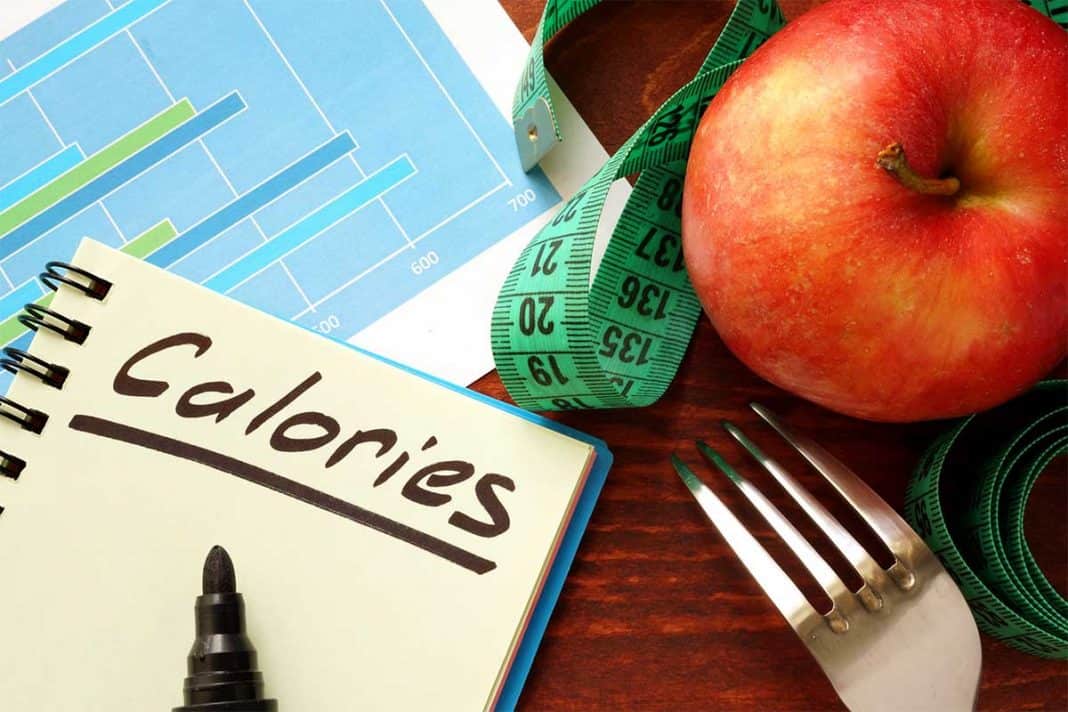The key to losing weight is to consume fewer calories than you burn. A simple concept, yet somehow, very difficult to monitor. There are many ways to do this that can empower you to more practically and realistically fit your weight-loss goals into your lifestyle. However, whatever weight-loss and dieting methods you choose all essentially fall into one of these two basic categories of consuming fewer and expending more calories, both of which you’ll explore in greater depth at the start of this article. Following that, you’ll discover a weight loss calculator you can use to more effectively manage your calorie intake throughout each day and achieve those long-sought weight-loss goals.
Calories, Food and Losing Weight
In order to properly and effectively monitor your calorie intake so you can lose weight, you need a basic understanding of how calories, food and weight are related.
The first step to losing weight is to eat fewer bad calories. While the most obvious way to achieve this is simply to eat less food, that’s not the only way to consume fewer calories. Rather, instead of eating less, you can simply eat smarter.
Good vs. Bad Calories
There is one underlying truth regarding calories consumed and weight loss: not all calories are built alike, or more accurately, not all sources of calories are alike.
A calorie is simply a measurement of energy. All foods provide energy to some degree. Some foods provide instant energy, though it may not last as long. Other foods provide sustained energy, though it may not be as much at once. Moreover, some foods provide various vitamins and other nutrients in addition to calories, while some foods provide only “empty” calories.
In order to provide your body with the energy it needs to sustain you throughout your day without tacking on extra weight, you need to get as much of your energy, or calories, from foods that provide sustained energy and the vitamins and nutrients your body also needs.
Simple sugars like white sugar and refined white flour provide the most instantaneous but shortest-lasting energy, as well as little to no vitamins and other nutrients. That’s why cookies and cakes provide you a quick burst of energy but leave you feeling ill and bloated afterward. On the flip side, complex sugars like whole grains provide a more gradual, steady and sustained level of energy and feed your body with many of the vital nutrients it needs to function.
Eating healthier sources of calories rather than unhealthier ones doesn’t just make you healthier, it also helps you lose weight. How? By providing your body with the nourishment it needs from a smaller amount of food, so you consume fewer calories.
When you eat mostly “empty” calories that only provide you instant energy but fail to provide you sustaining nutrients, your body craves more food in order to meet those nourishment needs. This is how cravings occur and why you often feel hungry shortly after eating certain foods, such as snack foods and fast-food takeout.
For instant energy, get your simple sugars from a more natural source, like fruits and 100% fruit juices. That way, you’re also getting valuable nutrients at the same time. And to help yourself eat less and experience fewer food cravings, put healthier sources of calories on your plate, like whole grains, unrefined carbohydrates, vegetables, lean proteins and unsaturated fats.
Healthy Foods
- Colorful Vegetables
- Whole fruits
- Lean meats
- Whole grains with fiber
- Seeds and small servings of nuts
- Water
Empty Calories
- Fast food
- Processed baked goods
- Sodas
- Candy
- White flower
- Processed grains
Burning More Calories
Besides eating fewer calories and simply being more aware of the type of calories you are consuming, increasing your activity level will also help you lose weight . This way, you don’t have to cut back as much of your favorite foods or feel like you’re starving yourself in order to shed those pounds.
From the understanding that calories are actually measurements of energy and that every action you take requires energy to perform, it’s a simple, logical step from there to realizing that every action you take uses up calories. Therefore, the more active you are, the more calories you burn.
If you live a particularly active lifestyle, you need to consume enough calories to support those energy needs. If you don’t live a particularly active lifestyle, however, then you don’t need so much energy. Therefore, you don’t need so many calories to meet your energy needs. If you eat more than you need, your body will store all those excess calories as fat for later use.
Weight Loss Calculator
So, given all that, how many calories do you specifically need to eat to lose weight? That depends largely on three things:
- Your physical characteristics – You need to know where you’re starting from in order to get where you’re going. When it comes to eating right to lose weight, this doesn’t just mean knowing your current weight. It also means taking other physical factors into account that can affect your ideal, healthy weight and the ways your body adds, sheds and distributes weight. These factors include your gender, age and height.
- Your lifestyle – Do you exercise daily? Do you live an active lifestyle? Or do you sit at a desk all day and on the couch all night? The more active you are, the more calories you can get away with eating each day.
- Your weight Loss goals – How much weight do you want to loose?
Generally speaking, men’s bodies require more calories than women’s bodies; larger bodies require more than smaller ones; and younger people require more than older ones. A person’s lifestyle, however, also plays a significant role on his or her caloric needs, in spite of these other factors.
Most calorie calculators simply tally the amount of calories you eat each day, but they fail to help you determine how many calories you should be eating, or, more accurately, limiting yourself to eating, in order to lose weight. For that, you need to factor in all the additional information listed above, like the weight loss calculator provided.
A total weight loss calorie calculator tool takes all the necessary factors into account in order to answer that all-important question: “How many calories should you eat to lose weight?”
How the Weight Loss Calorie Calculator Works
Applying a formula known as the Mifflin St. Jeor equation, this tool calculates your resting metabolic rate, or how many calories your body requires in order to function while at rest. The tool, then, applies your various physical and lifestyle factors in order to determine how many calories your body needs above its resting metabolic rate in order to meet the energy demands of each day.
From there, the weight loss percentage calculator determines how many calories you should eat to lose weight. As you now understand, if you eat more calories than your body requires to meet its daily energy demands, you’ll put on extra weight. If you eat the exact number of calories your body needs each day, you’ll maintain your existing weight.
If you eat fewer calories than your body needs to meet its daily energy demands, however, you will lose weight. That’s because your body will start to tap into the fat it’s previously stored for the energy it now needs. By burning up fat and avoiding adding more fat, you can still meet your daily energy requirements but lose weight while doing so.
That said, the US Food and Drug Administration’s (FDA’s) general recommendation for the average consumer as listed on the Nutrition Facts label is to eat 2,000 calories per day. This number does not, however, take body type, age, gender or lifestyle into account, however, and should only be used as a baseline and reference. For example, 2,000 calories is the approximate amount a lightly-active man of 40 years old, a moderately-active woman of 30 years old, an extremely-active petite woman of 25 years old and a tall man of 70 years old with a sedentary lifestyle would need to maintain their weight. If you don’t fall into one of these categories, however, the optimum number for you will likely vary. By comparison, many popular weight-loss diets recommend 1,600 calories per day for men and 1,200 calories per day for women.
Once you know where you specifically fall in relation to this 2,000-calories benchmark, you can make better use of nutrition labels to glean relevant information for your specific body and lifestyle and weight-loss goals.
The bottom line
Following the advice at the start of this article, fulfill your daily calorie requirement from good and healthy calorie sources and you’ll help yourself stay on target, avoid unhealthy cravings and have an easier time keeping the weight off once you lose it. A simple lifestyle and diet change can help you lose weight and feel satisfied.



